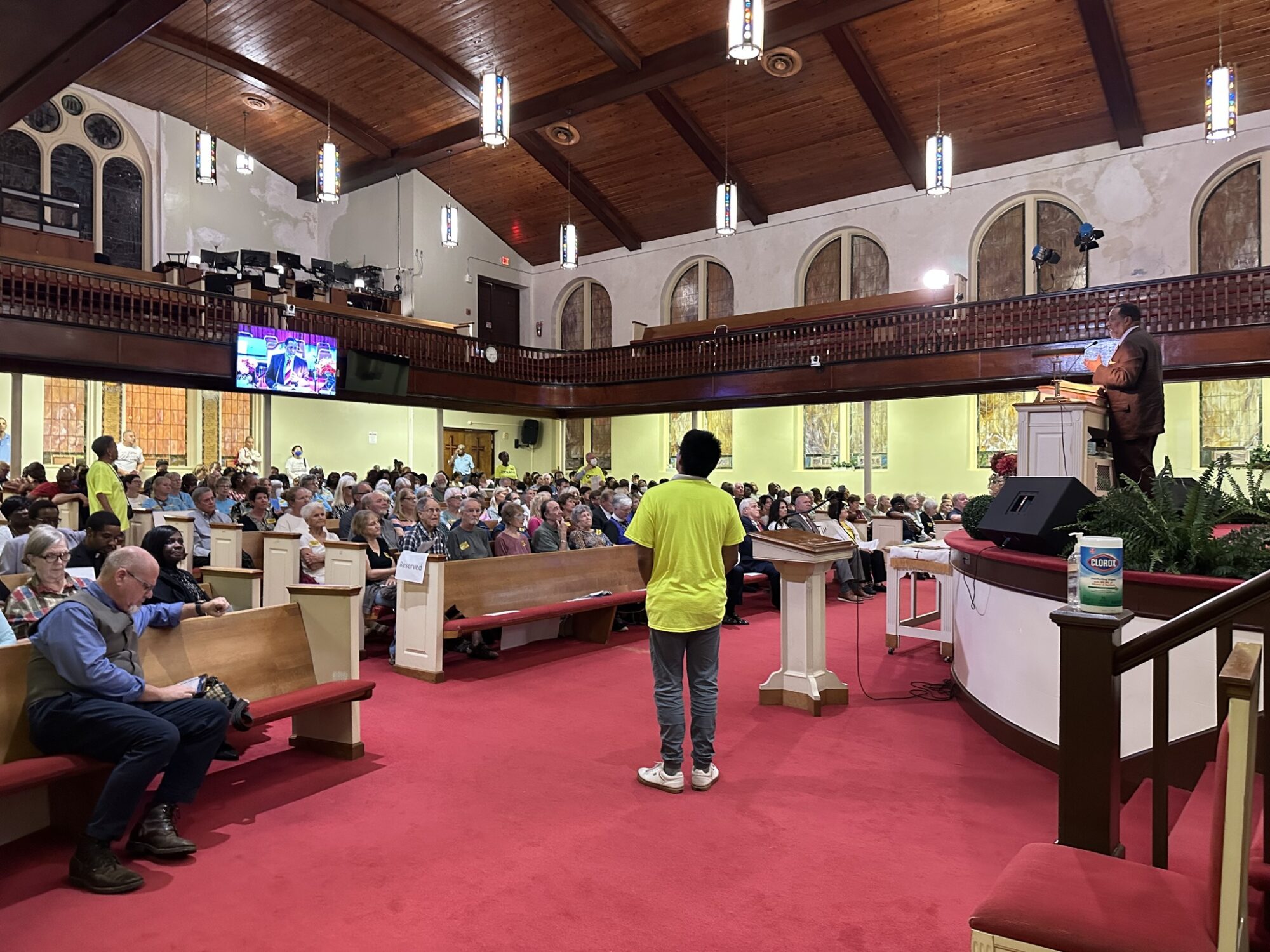By Rachael Perry, WPBF
A new Florida law targeting the homeless population has caused both controversy and confusion across the state.
Govenor Ron DeSantis signed House Bill 1365 back in March and the legislation went into effect this month. The new law prohibits public camping and sleeping on public property.
Since it was introduced, some local organizations have started speaking out against it.
People Engaged in Active Community Efforts (PEACE) is a justice ministry made up of twenty congregations throughout Palm Beach County.
The group held a gathering Tuesday to express concerns about the impact they feel the law could have on the community.
Rev. Dr. Sheila Harvey with United Church of Christ and PEACE spoke at the gathering saying HB 1365 goes against everything they believe in.
“Our various religious texts and traditions tell us to help the poor, feed the hungry, give water to the thirsty, and clothe the naked. This bill fundamentally goes against our different faith traditions that value dignity and humanity of every human being,” she said.
Harvey and PEACE members expressed a need for affordable housing and called on the county to work harder to provide the homeless population with alternative options.
“At its core, homelessness is a housing issue,” she said. “If we wish to adequately address homelessness, Palm Beach County needs to increase the number of affordable housings and the number of affordable rental apartments for those making below the 60 percent area median income.”
Harvey also voiced her fears about how the law will be enforced.
“Finding and arresting the homeless does nothing to address the root cause of the problem,” Harvey added. “In fact, House Bill 1365 will only make the problem worse by burdening the homeless with arrest records that make it harder to find jobs or qualify for housing.”
WPBF 25 News took their concerns to the county.
Tammy Fields, Assistant Palm Beach County Administrator, explained some misconceptions with how the law will impact the community in Palm Beach County.
“The law does not say that a person can’t be unsheltered, it says that counties and municipalities cannot authorize or allow a person to sleep there,” Fields said. “But it doesn’t criminalize homelessness.”
Meaning, the responsibility is on the county to address the needs of the homeless and prevent those individuals from sleeping in public parks or on the streets.
“The legislation specifically says that a county or municipality cannot authorize or allow an individual to sleep [on public property] overnight on a regular basis and it’s been shortened a lot of times in what people are perceiving the law to say that homelessness is now not allowed .. and that’s not what the legislation says,” Fields explained.
She also said that if the counties or municipalities do allow or authorize that, as of January 1, 2025, they could face legal action.
“Lawsuits can be filed against counties or municipalities if a person is regularly sleeping in an area that is public property. The downside of that is if we have to be defending those types of lawsuits, it takes away from resources that would be available to help people find shelter,” Fields added.
WPBF asked Fields how Palm Beach County plans to enforce the law.
“Well, in the parks in particular, the board did authorize for this year’s budget that we are increasing the number of park rangers that we have,” she said.
The park rangers do not have the power to make arrests but will instead patrol specific parks overnight to do outreach to people in need of resources.
“Those park rangers will be given information on how to do outreach to the individuals who are maybe in the parks overnight and will be able to direct them to appropriate resources,” Fields said. “They don’t have arrest powers so they won’t be taking them to jail.”
She said the county has increased signage at parks to explain the new law and have ramped up their outreach efforts including public awareness campaigns.
Fields said she agrees with PEACE in the need for more affordable housing and the county is actively working to address that.
“There is always this perception that individuals who are unhoused either have an addiction issue or severe mental health issue and certainly those cases exist, particularly amongst our chronic homeless, but the face of homelessness has changed where for some people it is just that they can’t afford housing and housing costs.”
Because of that, the county has ramped up efforts to establish affordable housing.
“We are exploring other options. One of the recommendations is to look at hotels or motels that may be vacant or up for sale. There’s a variety of options that we are exploring, including the building of mini cottages or alternative types of housing,” she said. “So those efforts are ongoing and they take a little bit of time to bring to fruition.”
In the meantime, the county provides several programs such as S.M.A.R.T Landlordwhich recruits landlords who can provide affordable units for low income and homeless individuals and families.
With the S.M.A.R.T Landlord program, the county offers homeless people subsidies to live in those units, ensuring that rent is paid every month.
The county also has a Housing Dashboard to assist people in finding housing that has been supported by the County.
A list of resources and more information can be found on the county’s website.
View the original story here.






